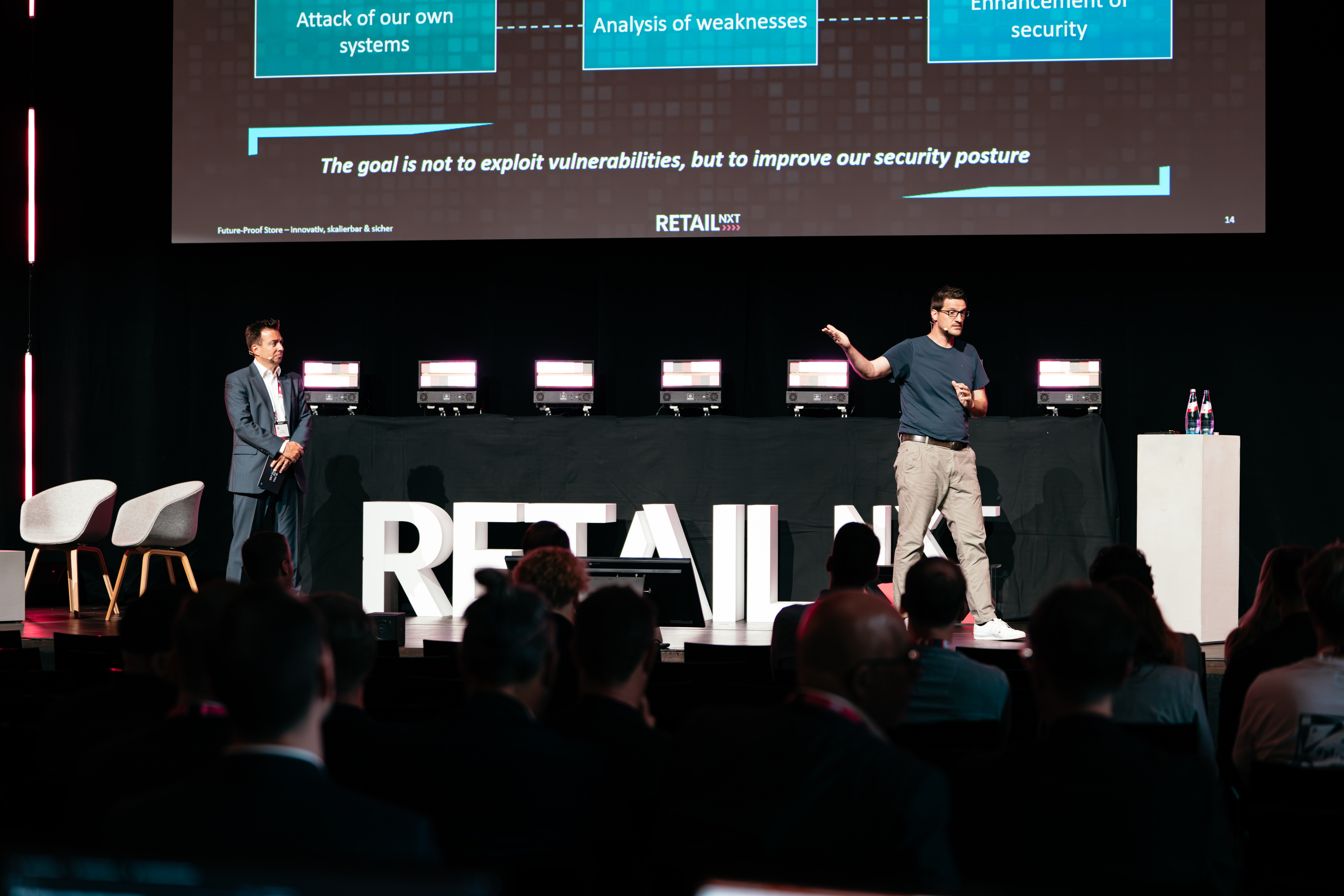Torsten Schmalbach, Vice President Consumer Products, Retail and Distribution at Capgemini Invent, and Matthias Jambor, Head of Security Engineering at REWE Digital, delivered an impressive blend of technological foresight and security strategy at RETAIL NXT. Their presentation, “Future-Proof Store – Innovative, Scalable & Secure”, highlighted how the store of the future is becoming not only more powerful through innovation, but also more resilient to modern threats.
The Store in Transition: More Than Just a Sales Channel
At the beginning of their talk, Schmalbach and Jambor addressed the evolving role of physical stores in an increasingly digital retail landscape. Despite the growth of e-commerce, stores remain a central anchor—though no longer just places of purchase:
-
Local Mission: Stores are increasingly fulfilling specific functions, tailored to their geographic and demographic context.
-
New Business Models: With retail media, stores are becoming platforms for additional revenue streams.
-
Personalization: The focus has shifted from personalized products to personalized shopping experiences—ranging from tailored campaigns to innovative app features.
The store becomes the interface between technology and customer experience, while requiring a stable and secure backend foundation.
Technological Drivers of Innovation
The future of physical retail is defined by rapid innovation, revolutionizing both customer experience and process efficiency:
-
Automated Task Management: Data from sensors, cameras, and IoT devices is used to automatically assign tasks.
-
Bring-Your-Own-Device: Both customers and employees benefit from functionalities available on their own devices, such as workforce planning or Scan & Go technologies.
-
Artificial Intelligence (AI): AI agents enable process automation—triggering repairs or optimizing store operations.
Schmalbach emphasized the importance of a modern architecture: microservices, API-first, cloud-native, and headless approaches provide the flexibility, scalability, and security needed to implement innovation quickly and reliably.
Security in Focus: Challenges and Solutions
Matthias Jambor offered a compelling look at the security threats associated with the growing digitalization of physical stores:
-
New Points of Attack: Devices like digital signage, WiFi routers, and IoT systems create potential entry points for attackers.
-
Diverse Threats: From opportunistic attackers and curious hackers to state-sponsored ransomware groups—the range of threats is broad and complex.
-
High Availability: Systems like Scan & Go must be not only secure but also highly available to prevent customer frustration.
To address these challenges, REWE Digital has established a comprehensive security framework:
- Asset Management: An overview of all IT devices and interfaces.
- Risk Management: Ongoing assessment and mitigation of risks.
- Security Operations Center (SOC): Centralized control of security measures.
- Red Teaming: An internal team continuously simulates attacks to uncover vulnerabilities and improve defenses.
The raccoon mascot of the Red Team symbolizes its mission: to uncover and close potential security gaps with intelligence and persistence.
Courage for Innovation: A Call to the Industry
In conclusion, Schmalbach and Jambor encouraged the industry to embrace the opportunities of digital transformation with boldness. Retail must not only implement innovative technologies but also integrate security strategies from the outset.
Their credo: “Be bold, take new paths—with partners, technologies, and a clear vision.”
Conclusion: The Store of the Future Is Smart and Secure
This presentation offered an impressive combination of innovation and security thinking. While Torsten Schmalbach presented the vision of a flexible, customer-centric store, Matthias Jambor provided the security architecture that makes this future possible. Together, they demonstrated that the store of the future is not only a place for shopping—but a hub of technological excellence and resilience.

